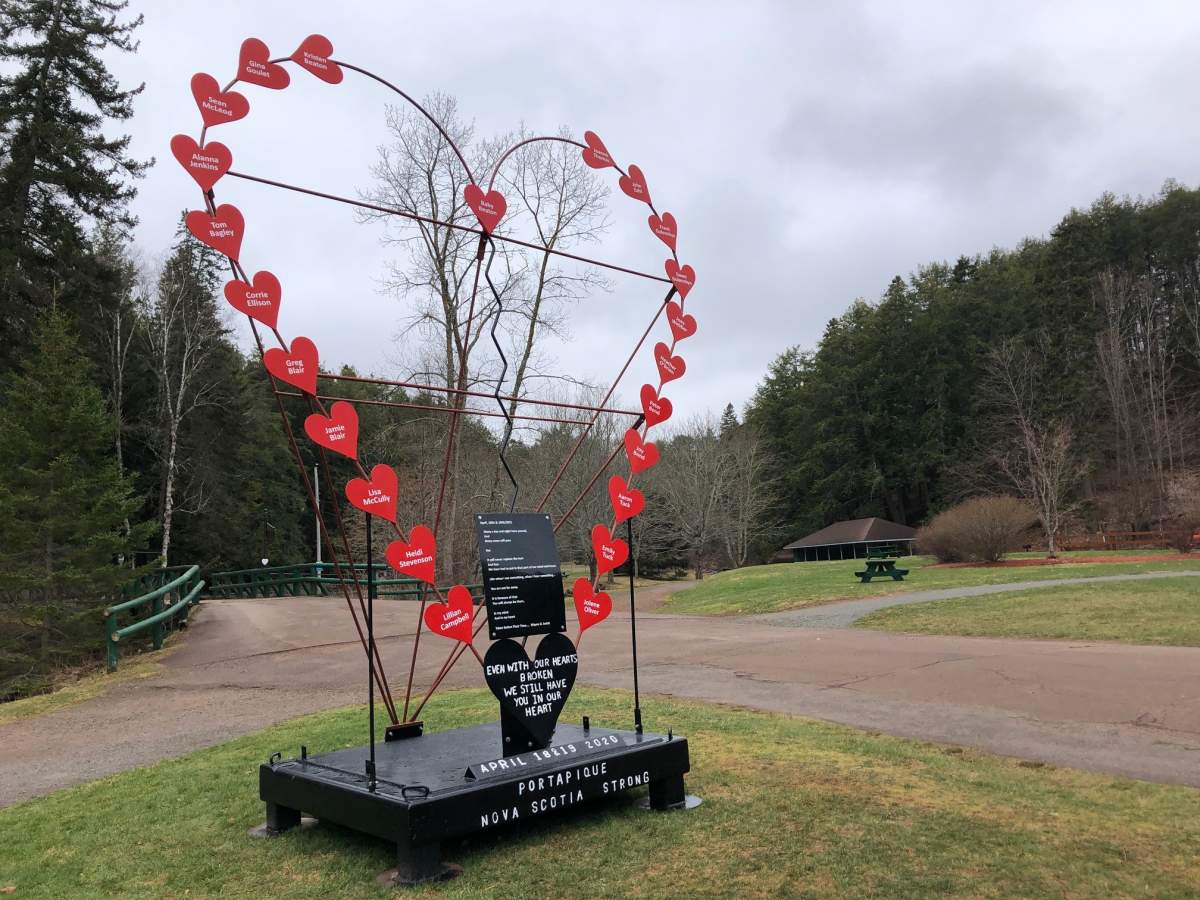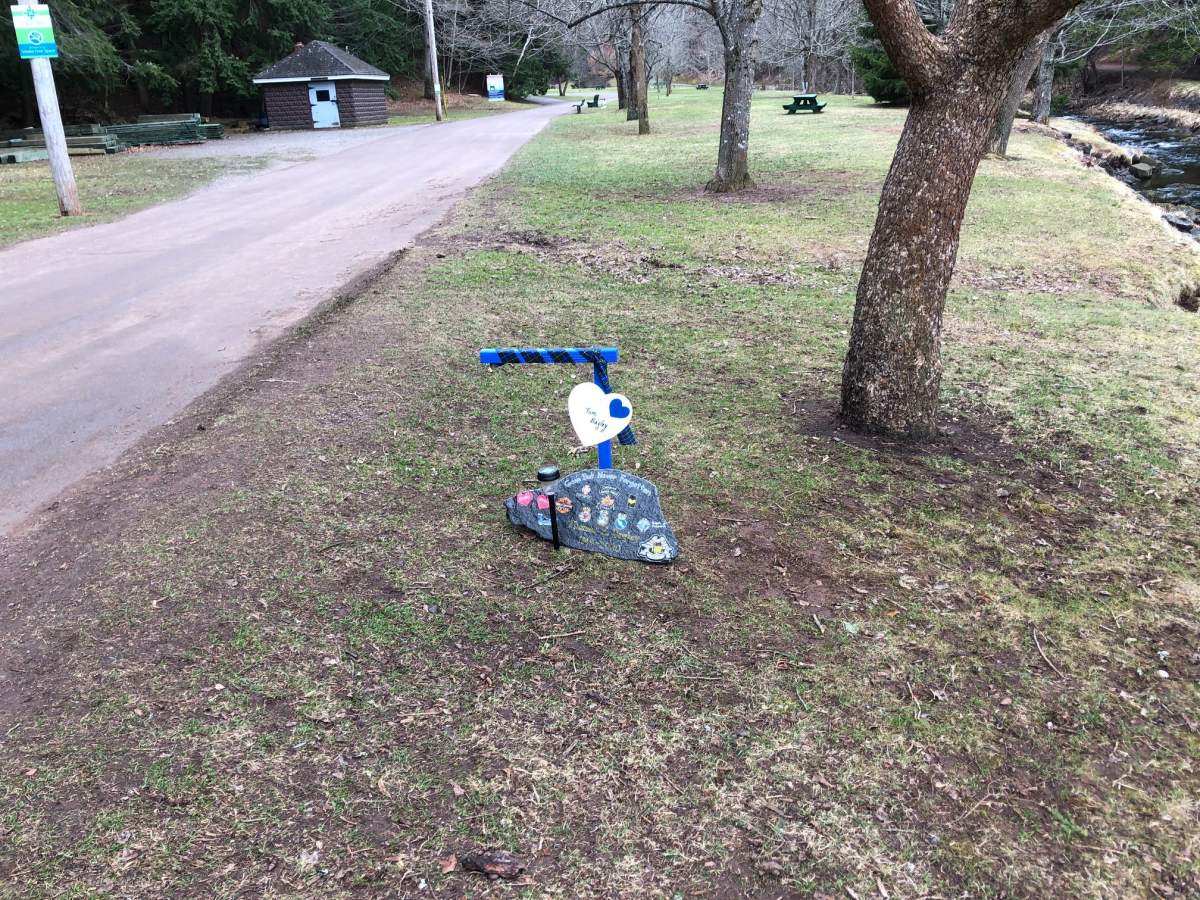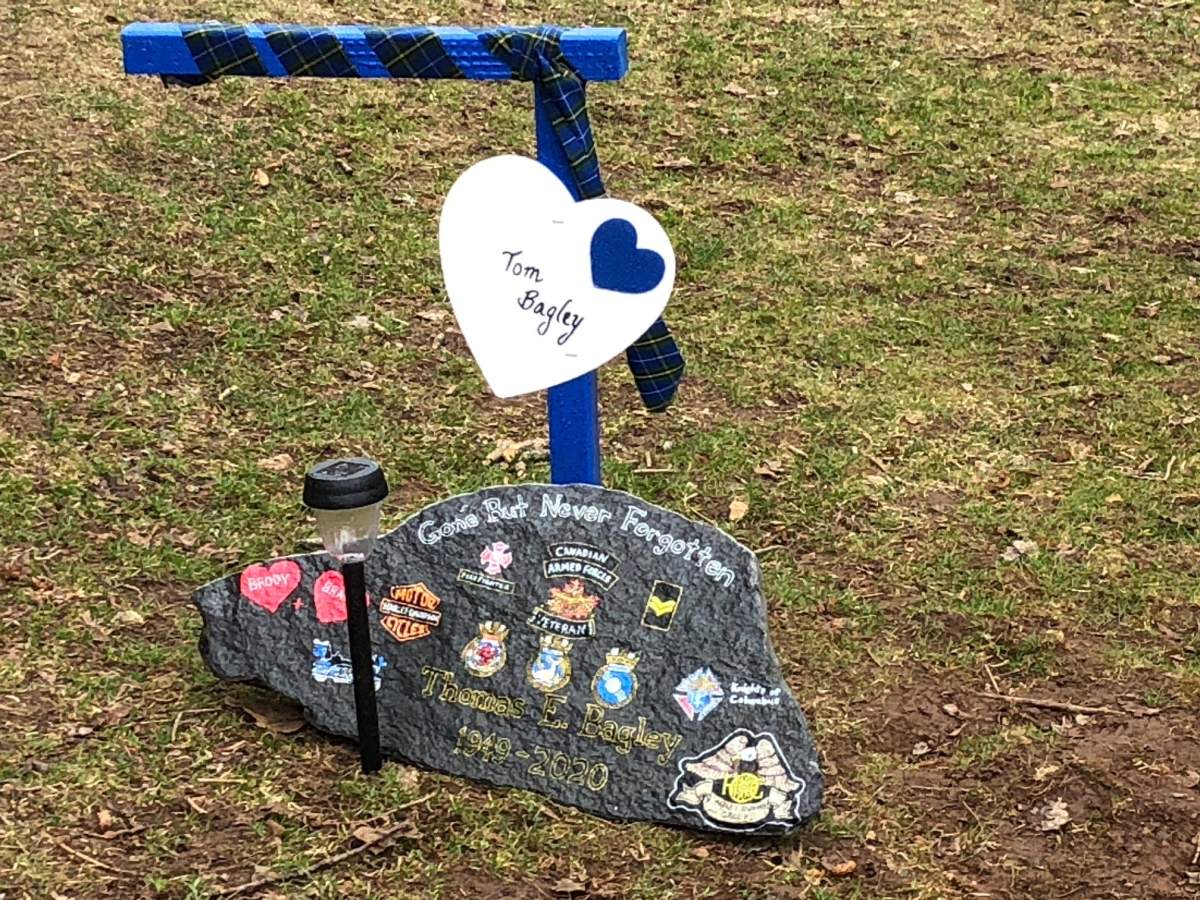People in Nova Scotia are still searching for answers after the deadliest shooting spree in Canada’s modern history.

A man, disguised as an RCMP officer, killed 13 people in the tiny village of Portapique. Then he used his fake RCMP vehicle to slip past officers and kill nine more people the next day before he was gunned down and killed.
It all happened one year ago, April 18-19, 2020. As a dreadful anniversary approaches this weekend, Nova Scotians are struggling to measure progress in their mental health.
Some symbols of strength are emerging for communities devastated by the mass killings.
Metal artist Wayne Smith, whose step-son, Corrie Ellison, was among 22 people murdered, created a large steel monument. The monument, which sits at Victoria Park in the town of Truro, features a poem and steel hearts for each of the gunman’s victims. Smith added a heart for the unborn baby of victim Kristen Beaton.
“When I say in the poem, ‘you’re still in part of our heart and our mind,’ you know, we can go back to that, but we still have to live and go on.”
Nearby, there is a series of memorial markers, installed by the Nova Scotia Remembers Legacy Society. The group is organizing memorial events and plans to create a permanent tribute in the Truro area.
A visit to the park is a reminder of how few degrees of seperation exist in Nova Scotia, and how the massacre has touched everyone in the province.
“I have a good friend who lost a close family member, and she’s had a hard year,” says regular park-goer Bev Read.

Get weekly health news
Carol Romain, whose daughter lives in nearby Debert, shakes her head in disbelief when recalling what happened.
“It’s senseless. There’s no rhyme or reason why someone would do that, in this day and age, in Nova Scotia,” Romain says.
Healing collectively is complicated, especially with pandemic restrictions. Just ask those whose job it is to help, like Pastor Steven Adams.
“Those things are really important — the ability to be able to connect with other people — and it’s been made a lot harder.”
Adams says there’s no shortage of goodwill. “I know there are a lot of people that care and a lot of people that want to help, and that’s a good thing. That’s always a good thing.”
For victims’ families, including school teacher Lisa McCully’s sister, Jenny Kierstead, April 18-19 will mark a dreaded first anniversary. “Oh, it’s agonizing. We are re-living the immediate pain that we felt.”
Kierstead and a group of volunteers, are a driving force behind the legacy society. She says therapy has helped her cope. But there are questions about how the Nova Scotia mental health system has responded in rural communities that were devastated by the mass killings.
Serena Lewis lives in Great Village, next to Portapique. For much of the past year, she was Nova Scotia’s Grief and Bereavement Coordinator.
“There’s a fragmentation. I guess I would say it’s fragmented, and that’s really had implications, I think, on the community. And, it will moving forward, as well,” Lewis says.
Lewis suggests traumatized communities need a more concerted effort.
“This is a specialized team of people that are going to come to the communities, meet people where they’re at, and try to build this foundationally from the ground up.”
The need for support is far from over. Mental health counsellors say that for some people, the after-effects of extreme trauma can become worse in the second year.
There are new stop-gaps, like Nova Scotia psychologists offering three free sessions, per person, to those most affected.
Susan Marsh, executive director of the Association of Psychologists of Nova Scotia, says there’s been immediate uptake.
“I’ve received about a dozen calls so far. They’re people who didn’t reach out originally because they thought they were OK.”
Even a year later, these are early days in the aftermath of something so hideous, and so shocking.













Comments
Comments closed.
Due to the sensitive and/or legal subject matter of some of the content on globalnews.ca, we reserve the ability to disable comments from time to time.
Please see our Commenting Policy for more.